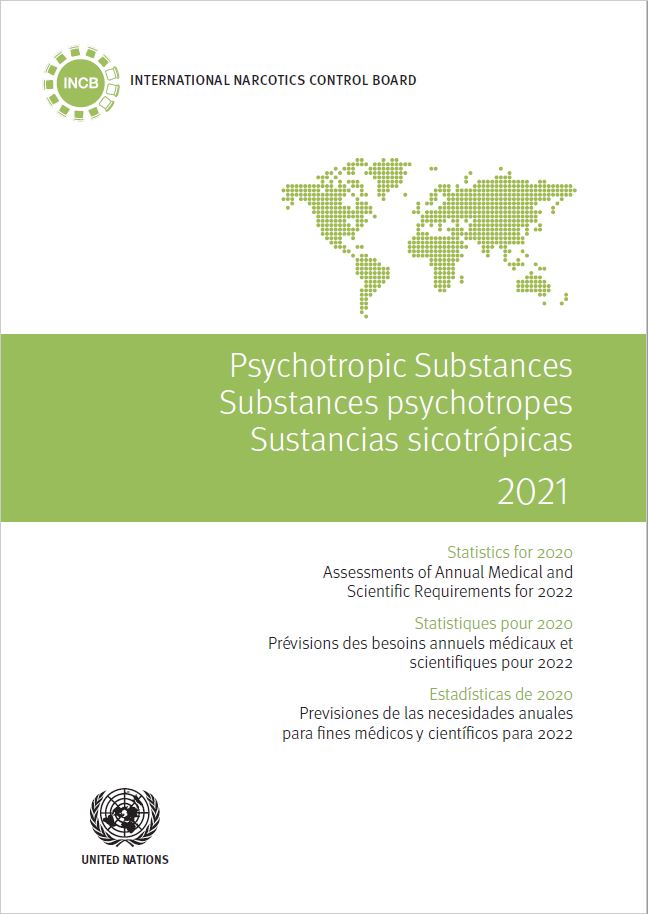Trade in internationally controlled psychotropic substances during 2020 largely unaffected by COVID-19 pandemic; monitoring availability remains a challenge due to limited consumption data

VIENNA, 16 March 2022 - The International Narcotics Control Board (INCB) released today ' Psychotropic Substances 2021', its technical report presenting the consolidated global data on the licit manufacture, trade, and consumption of internationally controlled psychotropic substances for 2020.
The report shows that while there may have been acute shortages of some internationally controlled psychotropic substances at the national or sub-national level during the early stages of the COVID-19 pandemic, data shows that at the international level manufacture of and trade in internationally controlled psychotropic substances was not significantly impacted in 2020.
In fact, there was an increase in licit activity involving midazolam, a benzodiazepine sedative-hypnotic used as an anesthetic, as some countries use the substance for the sedation of patients suffering severe COVID-19 symptoms. Data show that major manufacturers of midazolam, namely in India, Israel and Italy, increased their production considerably in 2020. Meanwhile, close to 40 countries doubled their imports and more than 40 countries reported higher consumption of the substance.
On the other hand, the continued impact of the COVID-19 pandemic and an increasing number of humanitarian crises around the globe have had a severe impact on mental health and well-being, in particularly for specific population groups like frontline workers, children and youth, women, elderly, people who use drugs, and those caught in humanitarian crises and conflict settings.
Of the 159 psychotropic substances under international control in 2020, thirty-seven saw significant activity on the licit international market, with most of that activity involving benzodiazepines included in Schedule IV of the 1971 Convention on Psychotropic Substances.
For the first time, the technical report includes a detailed analysis of the global assessment system for internationally controlled psychotropic substances. While a longer trend analysis of assessment data is not yet available, the report does reflect those countries generally adhere to the voluntary assessment system. Between 2016 and 2020, a total of 175 countries and territories provided updated assessments or modifications to established assessments of internationally controlled psychotropic substances.
The report also shows that monitoring the availability of psychotropic substances for medical and scientific use continues to be a challenge. While around 95 countries and territories did provide consumption data for at least one psychotropic substance, the gaps in consumption data remain significant and hinder the ability of the international community to ensure equitable access to internationally controlled psychotropic substances for medical and scientific purposes.
'Psychotropic Substances 2021' is now available for download along with a poster highlighting key findings from the report.
***